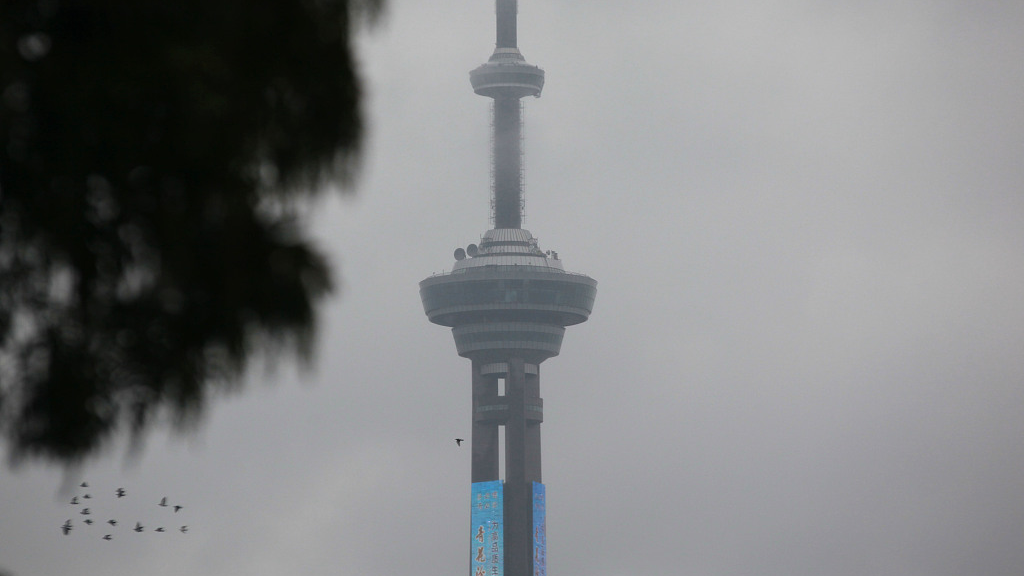A cold snap has brought sharp temperature drops and torrential rain to many parts of China in the past few days.
The country's meteorological authority continued to issue a blue alert for cold front on Wednesday, forecasting that the cold air will sweep across most of the central and eastern regions from Saturday to the following Monday.
Affected by the cold wave, temperatures in many areas across the country are expected to fall by 4 to 6 degrees Celsius from 8 a.m. Wednesday to 8 p.m. Thursday, with temperatures in some places forecast to plunge by 8 degrees Celsius.
The southward movement of the cold snap is expected to bring downpours to various provinces such as Sichuan, Shaanxi, Jiangsu, and Anhui in the next three days.
Moderate-to-heavy rains are expected to hit many regions like the northeastern Sichuan Basin, southern Shaanxi Province, and southern Tibet Autonomous Region.

Cold snap hit Nanjing City, east China's Jiangsu Province. /CFP
Cold snap hit Nanjing City, east China's Jiangsu Province. /CFP
Due to the continuous torrential rains upstream, the water level of the Qujiang River in Quxian County, southwest China's Sichuan Province, rose sharply, with the highest level in the Qujiang section reaching 15 meters as of 9 a.m. Wednesday, more than 10 meters higher than the annual average water level of 4.2 meters.
As of 2 p.m. Wednesday, local authorities have evacuated more than 2,000 households, as some road sections and buildings near the river were flooded.
Temperatures have nosedived in multiple areas of north China's Hebei Province in the past few days.
The lowest temperature in the northern areas of two cities, Zhangjiakou and Chengde, fell below zero degrees Celsius on Wednesday, with that of the Bashang area in Chengde City plummeting to minus 10 degrees Celsius, which also caused frost.
As the weather gets colder, a dozen wild swans were spotted flying to Korla City, northwest China's Xinjiang Uygur Autonomous Region, for winter.
With the continuous improvement of the ecological environment in the region, wild swans have migrated to Korla to winter for 17 consecutive years.
The low temperatures are expected to linger in most parts of China in the remaining days of the week-long National Day holiday. Meteorological experts say that the temperatures in the central and eastern regions will be lower than the same period of the previous years in the wake of the current cold wave.
(If you want to contribute and have specific expertise, please contact us at nature@cgtn.com.)